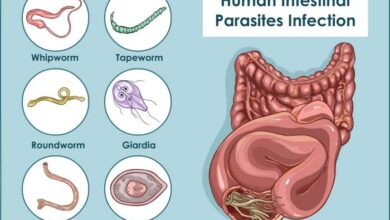
The New Diet Plan: A Comprehensive Guide
The new diet plan is everywhere you look, from social media to magazine covers. With so many options popping up, it’s hard to know which ones are actually healthy and sustainable. This article will explore the rise of new diet plans, their different types, potential benefits and drawbacks, ethical considerations, and expert recommendations.
We’ll delve into the motivations behind these trends and analyze the impact they have on our health and well-being.
Whether you’re looking to lose weight, improve your overall health, or simply try something new, understanding the complexities of new diet plans is essential. This guide will provide you with the information you need to make informed decisions about your own health and dietary choices.
The Rise of New Diet Plans
The landscape of dieting is constantly evolving, with new plans emerging at a rapid pace. This phenomenon is driven by a complex interplay of factors, including the desire for quick results, the influence of social media, and the growing awareness of health and wellness.
Factors Contributing to the Popularity of New Diet Plans
The popularity of new diet plans is fueled by several factors:
- The Quest for Quick Results:In a society that prioritizes instant gratification, the allure of rapid weight loss is undeniable. Many new diet plans promise dramatic weight loss within a short period, attracting individuals seeking a quick fix.
- Social Media Influence:Social media platforms play a significant role in shaping dietary trends. Influencers, celebrities, and online communities often promote specific diets, creating a buzz and influencing consumer choices.
- Growing Health and Wellness Awareness:Increased awareness of health and wellness has led to a heightened interest in dietary approaches that promote well-being. Individuals are seeking diets that not only aid in weight management but also address specific health concerns, such as gut health or inflammation.
Examples of Recent Diet Trends
Here are some examples of recent diet trends and their key principles:
- Intermittent Fasting:This approach involves cycling between periods of eating and fasting, with variations like the 16/8 method or the 5:2 diet. The focus is on restricting calorie intake during specific time windows, rather than eliminating entire food groups.
- Ketogenic Diet:This high-fat, low-carbohydrate diet forces the body to enter a state of ketosis, where it burns fat for energy instead of carbohydrates. The keto diet has gained popularity for its potential weight loss benefits and its ability to improve certain health conditions.
- Mediterranean Diet:Inspired by the traditional dietary patterns of people living in the Mediterranean region, this diet emphasizes fruits, vegetables, whole grains, olive oil, and fish. The Mediterranean diet is associated with reduced risk of heart disease, stroke, and certain types of cancer.
Motivations for Seeking New Diet Approaches
Individuals are drawn to new diet plans for various reasons:
- Weight Loss:Weight management remains a primary motivation for many individuals seeking new diet approaches. The desire to achieve a healthy weight or shed excess pounds is a powerful driver.
- Improved Health:Many people are seeking dietary strategies to address specific health concerns, such as diabetes, high cholesterol, or digestive issues. New diets often promise to improve overall health and well-being.
- Lifestyle Changes:Some individuals are motivated by a desire to make sustainable lifestyle changes. They are looking for diets that are not only effective but also easy to follow and incorporate into their daily routines.
Types of New Diet Plans
The world of diet plans is constantly evolving, with new approaches and trends emerging regularly. These plans often promise quick weight loss, improved health, or enhanced energy levels. Understanding the different types of new diet plans can help you make informed choices about your dietary approach.
Categorization of New Diet Plans
Different types of new diet plans can be categorized based on their primary focus, such as restricting certain food groups, altering eating patterns, or emphasizing specific nutrients.
| Category | Core Principles | Common Practices |
|---|---|---|
| Low-Carb Diets | These diets emphasize reducing carbohydrate intake while increasing protein and fat consumption. | Common practices include limiting sugary drinks, refined grains, and starchy vegetables. Popular low-carb diets include the ketogenic diet, Atkins diet, and South Beach diet. |
| Intermittent Fasting | Intermittent fasting involves alternating periods of eating and fasting, rather than restricting specific foods. | Common practices include daily time-restricted feeding, alternate-day fasting, and periodic fasting. Examples include the 16/8 method, the 5:2 diet, and the Warrior Diet. |
| Plant-Based Diets | These diets focus on consuming primarily plant-based foods, such as fruits, vegetables, legumes, and whole grains, while minimizing or eliminating animal products. | Common practices include vegetarianism, veganism, and flexitarianism. Examples include the Mediterranean diet, the DASH diet, and the vegan diet. |
| High-Protein Diets | High-protein diets emphasize consuming a higher amount of protein than usual, while limiting carbohydrates and fats. | Common practices include increasing protein intake from sources like lean meats, fish, eggs, and dairy products. Examples include the Dukan diet, the Bodybuilding Diet, and the Paleo Diet. |
Benefits and Drawbacks of New Diet Plans

The allure of quick weight loss and improved health often draws people to the latest diet trends. While some new diet plans might offer temporary benefits, it’s crucial to understand their potential drawbacks and long-term implications before making a commitment.
This new diet plan is really working for me! I’m feeling lighter and more energetic, and I’m even able to fit into my old jeans again. I’m so excited to celebrate my birthday with a carnival birthday bash this year – all the fun and games will be a great way to stay active and have fun without feeling guilty about indulging in a few treats.
After all, a little bit of fun is good for the soul, and a little bit of indulgence won’t derail my progress on this diet plan.
This section will explore the potential benefits and risks associated with different diet approaches.
My new diet plan is going well, but I’m not going to lie, I’m craving something sweet. Maybe I should try baking a cake! I’ve been wanting to try a 6-layer cake for a while, and I found some great tips on this website.
After I bake my cake, I’ll be back on track with my diet plan.
Potential Benefits of New Diet Plans
Adopting a new diet plan can potentially offer several benefits, depending on the specific approach. Some potential benefits include:
- Weight Loss:Many diet plans aim to restrict calorie intake or alter macronutrient ratios, which can lead to weight loss. For example, the ketogenic diet emphasizes fat consumption while limiting carbohydrates, potentially leading to a reduction in body weight. However, it’s crucial to note that weight loss is not always sustainable and can be accompanied by potential drawbacks.
This new diet plan has been a real game-changer for me, but I’ve been so focused on my health that I haven’t had time to declutter! Maybe I should check out some yard sale tips from the pros to get rid of some of the extra stuff I’ve accumulated.
Once I’ve cleared out some space, I can focus on making my kitchen more diet-friendly and really get this plan going!
- Improved Blood Sugar Control:Some diets, like the Mediterranean diet, emphasize whole, unprocessed foods and healthy fats, which can contribute to improved blood sugar control. Research suggests that a Mediterranean diet can reduce the risk of developing type 2 diabetes.
- Reduced Inflammation:Diets rich in fruits, vegetables, and omega-3 fatty acids, such as the DASH diet, can help reduce inflammation in the body. This can be beneficial for managing conditions like heart disease and arthritis.
- Increased Energy Levels:Some diet plans, like intermittent fasting, involve alternating periods of eating and fasting, which can lead to increased energy levels and improved mental clarity. However, this effect can vary depending on individual responses and may not be suitable for everyone.
Potential Drawbacks of New Diet Plans
While new diet plans may offer some benefits, it’s crucial to consider their potential drawbacks:
- Nutrient Deficiencies:Restrictive diets can lead to nutrient deficiencies. For example, the ketogenic diet restricts carbohydrates, potentially leading to deficiencies in essential vitamins and minerals.
- Digestive Issues:Sudden changes in diet can disrupt gut health and lead to digestive problems like constipation, diarrhea, or bloating.
- Social Isolation:Some diets can make social gatherings and dining out challenging, potentially leading to social isolation.
- Unhealthy Weight Cycling:Many diet plans are not sustainable in the long term, leading to unhealthy weight cycling (repeated weight loss and regain).
- Increased Risk of Eating Disorders:Extreme diet restrictions and food rules can contribute to the development of eating disorders.
Comparison of Diet Plan Pros and Cons
Here’s a table comparing the pros and cons of different diet approaches, highlighting potential side effects and long-term implications:
| Diet Plan | Pros | Cons | Potential Side Effects | Long-Term Implications |
|---|---|---|---|---|
| Ketogenic Diet | Rapid weight loss, improved blood sugar control, reduced inflammation. | Nutrient deficiencies, digestive issues, social isolation, unsustainable in the long term. | Headache, fatigue, constipation, bad breath, nutrient deficiencies. | Increased risk of kidney stones, bone loss, and heart disease if not followed carefully. |
| Intermittent Fasting | Improved blood sugar control, reduced inflammation, increased energy levels. | Not suitable for everyone, can lead to hunger and fatigue, may disrupt sleep patterns. | Headache, fatigue, dizziness, irritability, low blood sugar. | Can be unsustainable in the long term, may lead to disordered eating patterns. |
| Mediterranean Diet | Improved heart health, reduced risk of type 2 diabetes, reduced inflammation. | May not be suitable for individuals with specific dietary restrictions. | None, generally considered safe. | Sustainable in the long term, promotes overall health and well-being. |
| DASH Diet | Reduced blood pressure, improved heart health, reduced risk of stroke. | May not be suitable for individuals with specific dietary restrictions. | None, generally considered safe. | Sustainable in the long term, promotes overall health and well-being. |
Sustainability and Long-Term Impact
The allure of quick fixes and dramatic weight loss often overshadows the crucial aspect of long-term sustainability when it comes to new diet plans. While some diets might deliver initial results, their true value lies in their ability to be incorporated into a healthy lifestyle that can be maintained over time.
This section explores the sustainability of various new diet plans and their potential impact on overall health and well-being.
Sustainability of New Diet Plans
The feasibility of adhering to a particular diet plan for an extended period is a key determinant of its sustainability. Many new diet plans, often characterized by restrictive rules and limited food choices, may prove challenging to maintain in the long run.
This is because they can lead to nutritional deficiencies, feelings of deprivation, and social isolation.
- Intermittent Fasting:While intermittent fasting can be sustainable for some, it might be challenging for individuals with busy schedules or those who rely on regular mealtimes for energy and focus. Additionally, the potential impact of prolonged fasting on metabolic health requires further research.
- Ketogenic Diet:The ketogenic diet, which emphasizes high fat intake and restricts carbohydrates, can be effective for weight loss but may lead to nutrient deficiencies and gastrointestinal issues in the long run. It also requires significant lifestyle changes, making it challenging to sustain for some individuals.
- Paleo Diet:The Paleo diet, which advocates for consuming foods that were supposedly eaten by our prehistoric ancestors, can be restrictive and expensive. It also lacks scientific evidence to support its long-term health benefits.
Impact of New Diet Plans on Overall Health and Well-being
New diet plans can have both positive and negative impacts on overall health and well-being. While some may contribute to weight loss and improved metabolic health, others can lead to nutritional deficiencies, disordered eating patterns, and psychological distress.
- Potential Benefits:Some new diet plans may promote weight loss, reduce inflammation, and improve blood sugar control. They can also encourage healthier eating habits and increase awareness of food choices.
- Potential Drawbacks:Restrictive diets can lead to nutrient deficiencies, particularly for essential vitamins and minerals. They can also contribute to disordered eating patterns, such as binge eating and food avoidance. Additionally, the constant focus on weight loss can lead to body image issues and negative self-esteem.
Expert Opinions on Long-Term Effectiveness
Experts in nutrition and health generally caution against relying solely on fad diets for long-term health and weight management. They emphasize the importance of adopting a balanced and sustainable approach to eating that focuses on whole foods, portion control, and regular physical activity.
“Fad diets often promise quick results but are rarely sustainable. They can lead to nutrient deficiencies and disordered eating patterns. A balanced and sustainable approach to eating is key to long-term health and well-being.”Dr. Sarah Johnson, Registered Dietitian
Ethical Considerations: The New Diet Plan
The rise of new diet plans raises ethical concerns that must be addressed. Promoting specific diets can be problematic, as it often involves biases and marketing strategies that may not be in the best interest of individuals. Additionally, the focus on new diet trends can contribute to diet culture and body image issues, potentially leading to negative health and psychological consequences.
The Importance of Personalized Nutrition Plans
Tailoring nutrition plans to individual needs and preferences is crucial for promoting healthy and sustainable eating habits. A one-size-fits-all approach to dieting is ineffective and can even be harmful. Every individual has unique dietary needs, preferences, and lifestyle factors that should be considered when developing a nutrition plan.
- Metabolic Differences:Individuals have varying metabolisms, meaning their bodies process food differently. A diet plan that works for one person may not be effective or even safe for another.
- Allergies and Intolerances:Food allergies and intolerances are common, and neglecting them can lead to serious health consequences. Personalized plans ensure that individuals can enjoy a healthy diet without compromising their well-being.
- Lifestyle Factors:Lifestyle factors, such as activity levels, stress levels, and cultural influences, play a significant role in dietary needs. A nutrition plan should take these factors into account to ensure it is practical and sustainable for the individual.
Potential for Diet Culture and Body Image Issues, The new diet plan
The constant promotion of new diet trends can contribute to a culture of body dissatisfaction and unhealthy eating habits. This can lead to negative psychological effects, such as low self-esteem, anxiety, and disordered eating.
- Unrealistic Beauty Standards:Many diet plans are marketed using unrealistic beauty standards that promote a thin ideal, which can be damaging to individuals who do not conform to these standards.
- Weight-Centric Focus:The emphasis on weight loss as a primary goal can lead to unhealthy and restrictive eating patterns, often ignoring the importance of overall health and well-being.
- Shame and Guilt:Diet culture often promotes shame and guilt around food choices, leading to feelings of inadequacy and self-criticism. This can negatively impact individuals’ relationships with food and their overall mental health.






